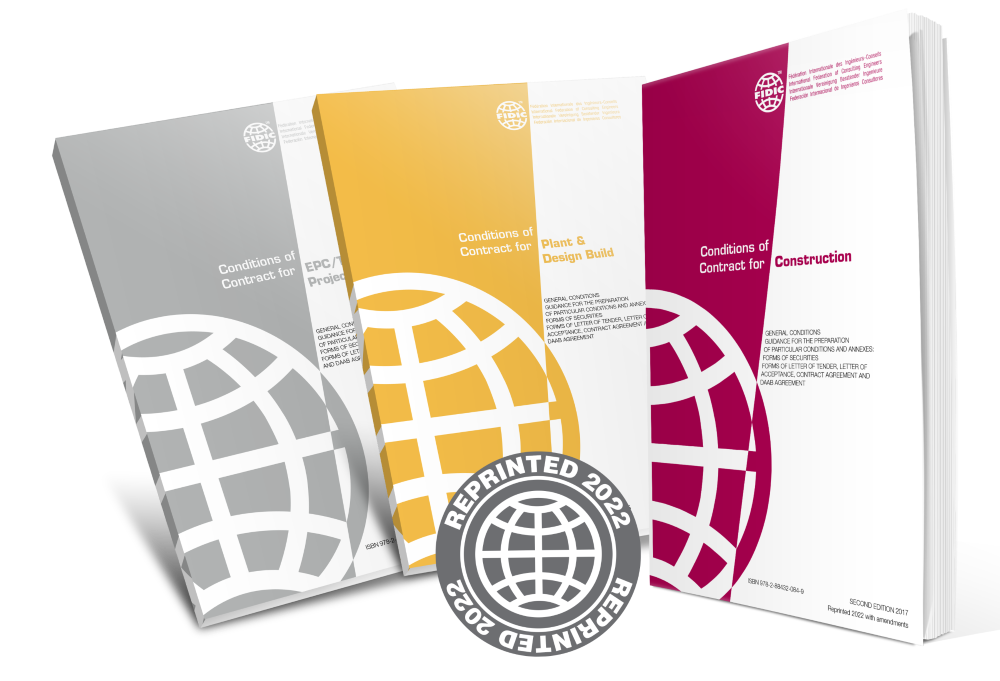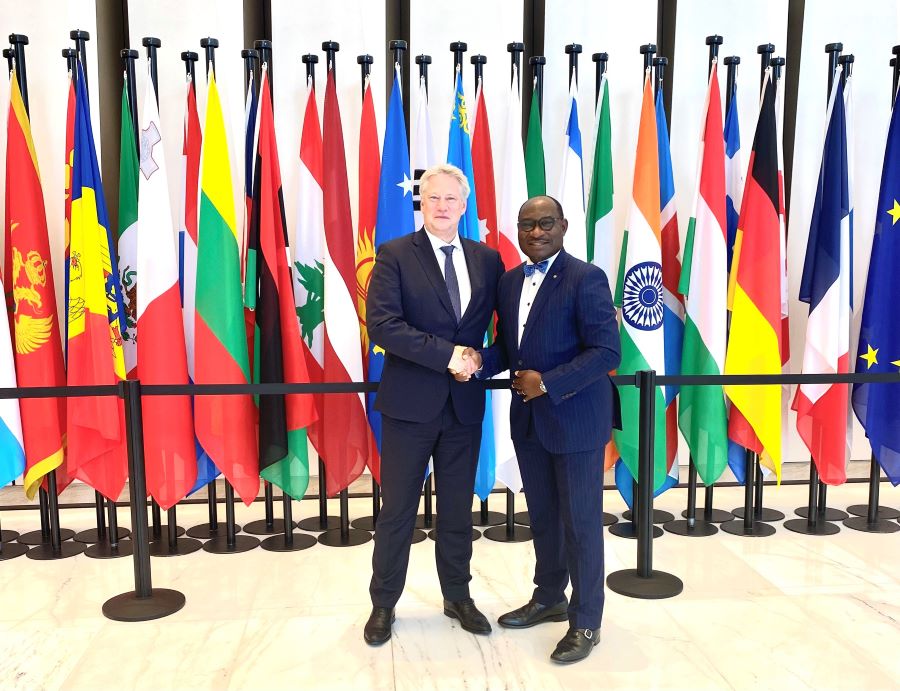FIDIC’s chief executive explains the significance of the recent agreement signed with the World Bank that will see the international funding organisation adopt the use of nine FIDIC standard construction contracts for a further five years.
Following the news that the World Bank has just renewed a key agreement to use FIDIC standard contracts for a further five years, FIDIC CEO Dr Nelson Ogunshakin spoke to Infrastructure Global about the significance of the bank’s move and what it means for the engineering, construction and infrastructure sector.
Why is it important for FIDIC to have a relationship with organisations like the World Bank?
“It is vitally important because the World Bank is an influential player in the global marketplace in which FIDIC operates and our longstanding and close relationship is a strength for both organisations and indeed the industry that we represent. We have an open two-way dialogue with key officials at the World Bank and I know that they value that. Because of their fair and balanced approach, FIDIC contracts offer international funding organisations a much greater degree of certainty in their procurement and we are delighted that, by using our contracts, the bank is providing an endorsement of that fair and balanced approach that these documents offer to parties on major construction contracts.”
What does the agreement you have signed with the World Bank mean in practice?
“Under the terms of the agreement, FIDIC has granted the World Bank a non-exclusive licence to refer to nine major FIDIC contracts for projects they finance and use the documents as part of the bank’s standard bidding documents. The contracts include the 2017 Second edition FIDIC contracts, as reprinted in 2022, which cover a wide range of international construction and infrastructure work. In practice, this means that a considerable proportion of the bank’s construction procurement will be carried out with reference to FIDIC contracts and this will benefit many stakeholders – the bank, parties to those contracts, the wider industry and of course end users.”

What are the benefits to the industry of using FIDIC contracts?
“By agreeing to adopt FIDIC contracts and use them as part of their standard bidding documents, the World Bank is helping to create more certainty. In adopting these contacts on major projects the bank is providing an endorsement of the approach that these documents offer to parties on major construction contracts. That approach is a fair and balanced one, with due regard to an equitable allocation of risk, and one which promotes good relationships between all parties to the contract.
“By having such major international market buy-in for our contracts – which also includes our recent contract reprints and new editions – we believe that this will also influence the global supply chain to also adopt FIDIC contracts, thereby creating even more certainty in the planning and delivery of major international construction and infrastructure projects. Furthermore, it is also worth noting that World Bank funding brings in additional private sector funding and involvement, leveraging in more money to the table to benefit both the industry and also end users.”
FIDIC contracts are highly regarded for their dispute avoidance provisions. Tell us about those.
“As well as offering a fair and balanced approach to parties to major construction contracts, FIDIC contracts also contain embedded dispute avoidance provisions, including requiring the use of standing dispute avoidance and adjudication boards (DAABs) for dealing with disputes should they arise. By following the guidance contained in the FIDIC contracts, the likelihood of a dispute escalating and ending up in arbitration is minimised and the approach we advocate always is dispute avoidance where communication between the parties is crucial. FIDIC has also recently issued guidance in this area in the form of a practice note to highlight awareness of the dispute avoidance function of dispute boards for FIDIC contract users and adjudicators and to ensure that best practice is adopted going forward.
“Dispute avoidance is critical when it comes to successful project delivery and resolving and avoiding disputes as early and as quickly as possible is in the best interests of the project itself, as well as all those involved with it. So, the provisions around dispute avoidance contained in FIDIC contracts are helpful to all parties and foster good communication that all projects need, especially when difficulties or challenges arise.
“In addition, the FIDIC President’s List of Approved Dispute Adjudicators is also available for the industry to use when looking to identify a qualified adjudicator, where any party wishing to name or appoint an individual to act as adjudicator or member of a DB, DAB, DAAB or adjudicator can consult this list free of charge to decide who to name or appoint as member or adjudicator. Individuals on the President’s list have been specially assessed for inclusion and are suitably qualified individuals holding a valid FIDIC Certified Adjudicator (FCA) Certification issued by FIDIC’s independent credentialing body, FCL Ltd.”

How does the agreement with the World Bank benefit FIDIC’s member associations?
“The agreement we have signed with the World Bank means that the contracts that are being used on major bank-funded construction projects are underpinned by the key FIDIC principles of integrity, sustainability and quality – which are all principles that are held dear by our members associations and their member firms around the world. In countries where there are no statutory national guidelines around construction procurement, having the World Bank’s contracts underpinned by FIDIC values is a big benefit to those member associations operating in those countries as it is helping to influence the market in which construction projects take place.
“Having a leading influential funder like the World Bank adopting the use of FIDIC contracts for projects they finance and using the documents as part of the bank’s standard bidding documents is enormously important as other international funding bodies and global clients can see that these are contracts that work in practice, are fair and equitable to all parties and can help to increase the probability of successful outcomes on contracts.”
What about those organisations that do not work on World Bank projects? Is there any benefit to them from this agreement?
“As I said earlier, the use of FIDIC contracts by such an influential body as the World Bank is an important development for the global construction market. It creates an internationally acceptable standard for construction contracting and therefore influences the way that others work in this area. The FIDIC contracts are the best in class, tried and assessed, globally acceptable standards, widely used by most multinational clients investing in major infrastructure around the world. Their adoption by other organisations provides benefits and assurance to investors, insurers, financers and supply chains and helps to secure the bankability of the project.
“FIDIC is also keen to promote the successful use of its contracts on global construction projects through initiatives like our annual Global Infrastructure Awards and FIDIC Contract Users’ Awards, both of which highlight how FIDIC contracts are helping to deliver world-class construction and infrastructure projects that are making a positive difference to people’s lives. At the end of the day, that is what we all want to see – quality, sustainable infrastructure that is facilitated by contracts which are fair and equitable to all parties.”

Why do you think that the World Bank and the other multilateral development banks value FIDIC contracts?
“The World Bank and other multilateral development banks, such as European Bank for Reconstruction and Development (EBRD), who signed a similar agreement earlier this year, are extremely influential organisations for our industry, as collectively they invest over $I90bn in infrastructure per year across the world. The fact that they (the MDBs) are keen to use FIDIC contracts on their projects is really significant.
“Why do they use them and incorporate them in their standard bidding documents? In the main, I think it is because they trust them and know that these are documents that have been developed by the industry in consultation with clients, lawyers, contractors, engineers and funding organisations in such a way that they promote fairness and equity which are all values that the MDBs want to promote in their contracting activity.
“We know that the longstanding use of FIDIC contracts by many major clients, including the MDBs, is a key factor in the successful delivery of a variety of infrastructure projects across the world. Ensuring that tender packages and contracts are accessible to all companies is crucial and given the global use, adaptability and recognition that the FIDIC suite of contracts benefit from, they are an excellent fit that support the needs of organisations like the World Bank, EBRD, other MDBs and indeed many leading funding organisations and clients around the world.”


















